Shopping Cart
Remove All Your shopping cart is currently empty
Your shopping cart is currently empty
Anti-DSG-2/Desmoglein-2 Antibody (5U33) is a Rabbit antibody targeting DSG-2/Desmoglein-2. Anti-DSG-2/Desmoglein-2 Antibody (5U33) can be used in FCM,IHC,WB.
| Pack Size | Price | USA Warehouse | Global Warehouse | Quantity |
|---|---|---|---|---|
| 50 μL | $298 | 7-10 days | 7-10 days | |
| 100 μL | $497 | 7-10 days | 7-10 days |
| Description | Anti-DSG-2/Desmoglein-2 Antibody (5U33) is a Rabbit antibody targeting DSG-2/Desmoglein-2. Anti-DSG-2/Desmoglein-2 Antibody (5U33) can be used in FCM,IHC,WB. |
| Synonyms | MGC117037, MGC117036, HDGC, DSG2, Desmoglein-2, CMD1BB, CDHF5, ARVC10 |
| Ig Type | IgG |
| Clone | 5U33 |
| Reactivity | Human,Mouse,Rat |
| Verified Activity | 1. Western blot analysis of Desmoglein 2 on A431 cell using anti-Desmoglein 2 antibody at 1/500 dilution. 2. Immunohistochemical analysis of paraffin-embedded rat heart tissue using anti-Desmoglein 2 antibody. Counter stained with hematoxylin. 3. Immunohistochemical analysis of paraffin-embedded human colon cancer tissue using anti-Desmoglein 2 antibody. Counter stained with hematoxylin. 4. Immunohistochemical analysis of paraffin-embedded human prostate tissue using anti-Desmoglein 2 antibody. Counter stained with hematoxylin. 5. Immunohistochemical analysis of paraffin-embedded human placenta tissue using anti-Desmoglein 2 antibody. Counter stained with hematoxylin. 6. Immunohistochemical analysis of paraffin-embedded mouse small intestine tissue using anti-Desmoglein 2 antibody. Counter stained with hematoxylin. 7. Flow cytometric analysis of A431 cells with Desmoglein 2 antibody at 1/100 dilution (red) compared with an unlabelled control (cells without incubation with primary antibody; black). Alexa Fluor 488-conjugated goat anti-rabbit IgG was used as the secondary antibody. 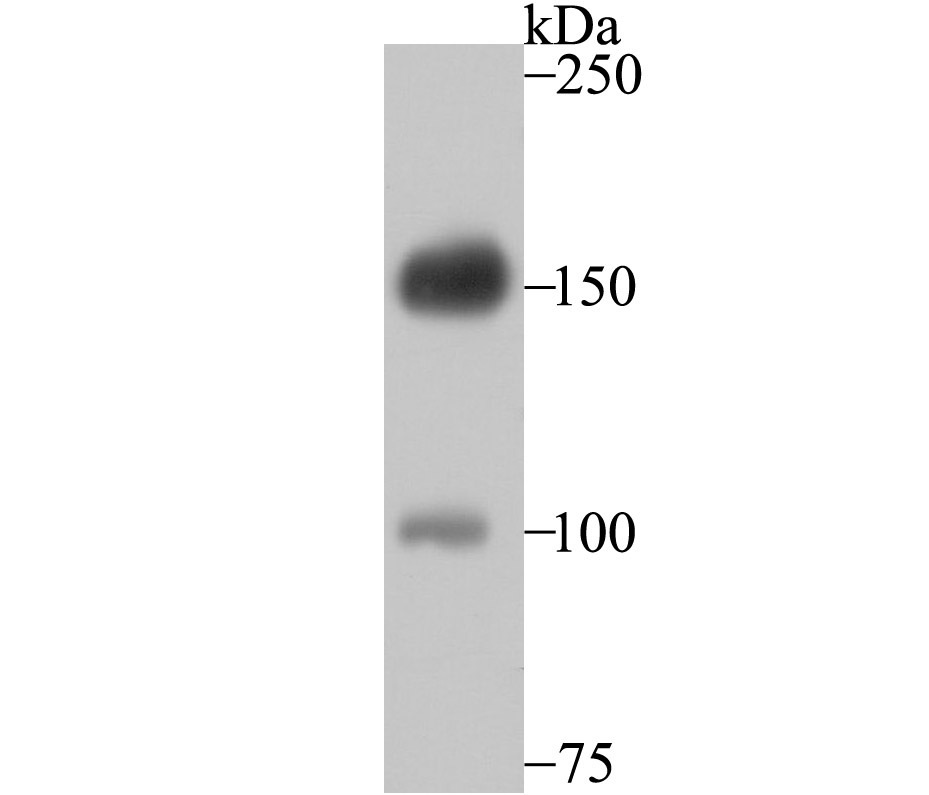 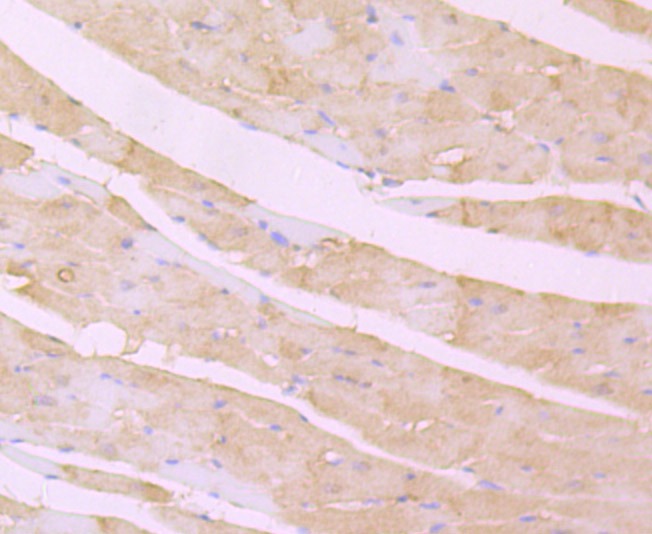 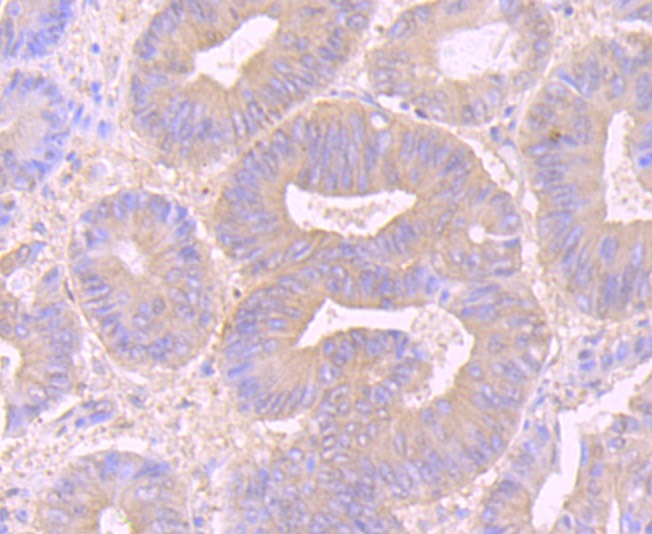 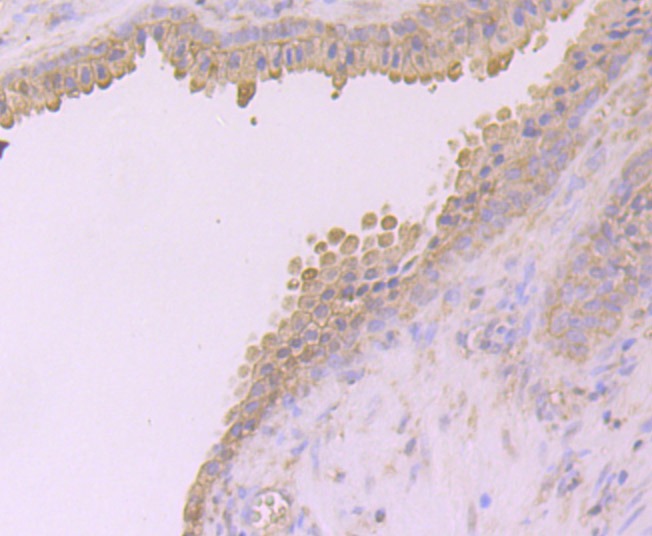 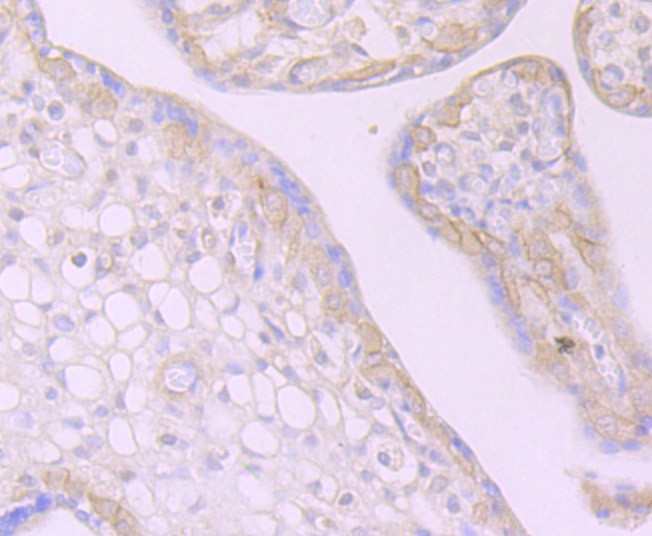 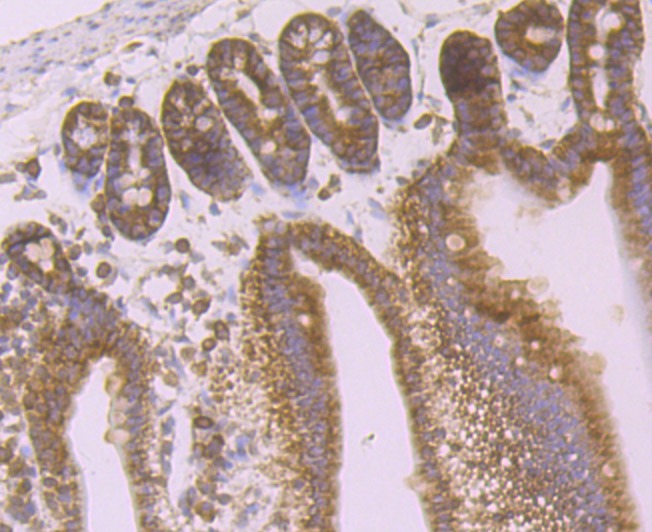 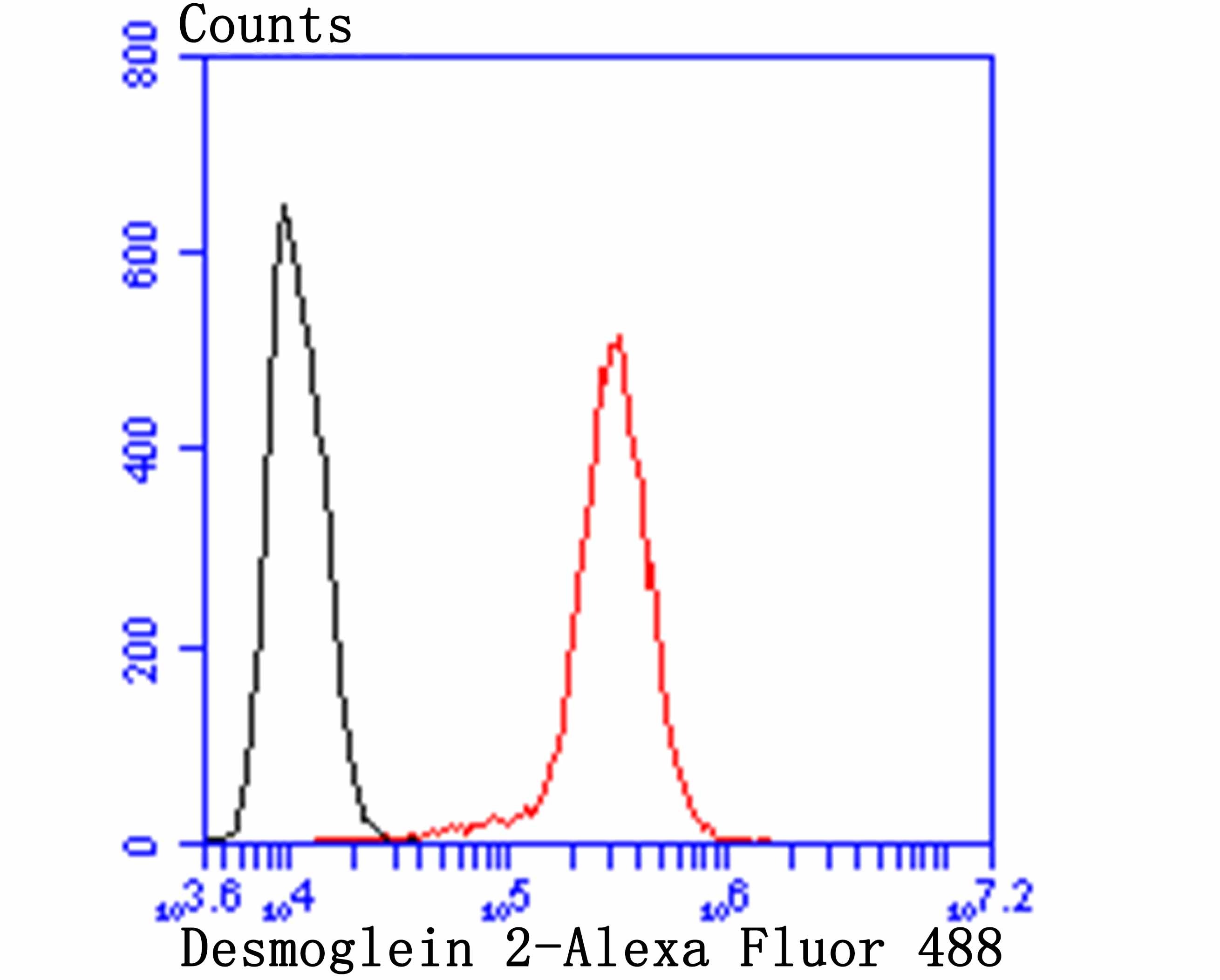 |
| Application | |
| Recommended Dose | WB: 1:500-1000; IHC: 1:50-200; FCM: 1:50-100 |
| Antibody Type | Monoclonal |
| Host Species | Rabbit |
| Construction | Recombinant Antibody |
| Purification | ProA affinity purified |
| Appearance | Liquid |
| Formulation | 1*TBS (pH7.4), 1%BSA, 40%Glycerol. Preservative: 0.05% Sodium Azide. |
| Research Background | Pemphigus is an autoimmune disease of skin adhesion associated with auto-antibodies against a number of keratinocyte antigens, such as the adhesion molecules desmoglein (dsg) 1 and 3 and acetylcholine receptors. Desmogleins, Type I membrane proteins, are important for cell adhesion and are expressed in great abundance at the desmosomes, which are adhesive cell junctions. Desmogleins belong to the cadherin family and consist of dsg1, dsg2 and dsg3. Calcium binds to the putative calcium binding sites at the extracellular N-terminal domain, which has cadherin-like repeats. Unlike normal human keratinocytes, the squamous cell carcinoma cells exhibit diminished or un-usual expression of dsg3 and dsg1, which bear pemphigus vulgaris and pemphigus foliaceus antigens, respectively. Several carcinoma cell lines constantly express dsg2 and dsg3 mRNA, whereas cultured normal human keratinocytes always express dsg1 and dsg3 mRNA, with or without dsg2 mRNA. This expression pattern indicates that desmoglein isoforms exhibit abnormal expression and may be related to tumor cell kinetics, such as cell invasion and metastasis. dsg2 is the fundamental dsg common to all desmosome-possessing tissues and is the largest desmoglein in the family. |
| Conjucates | Unconjugated |
| Immunogen | Recombinant Protein |
| Uniprot ID |
| Molecular Weight | Theoretical: 150 kDa. |
| Stability & Storage | Store at -20°C or -80°C for 12 months. Avoid repeated freeze-thaw cycles. |
| Transport | Shipping with blue ice. |
| Size | Quantity | Unit Price | Amount | Operation |
|---|

Copyright © 2015-2026 TargetMol Chemicals Inc. All Rights Reserved.